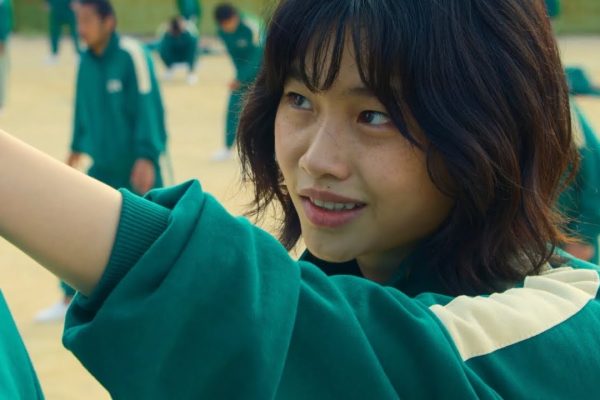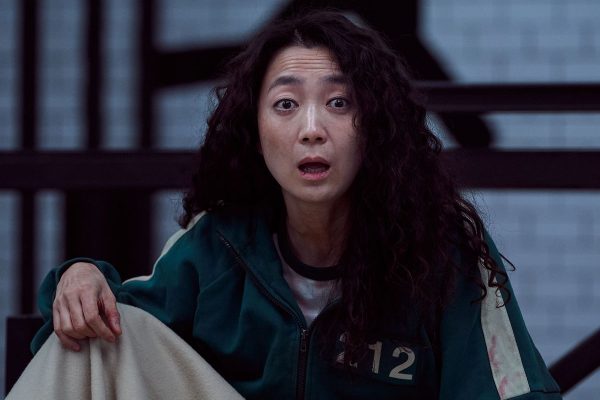While we can sit back and enjoy this show as simple entertainment, this is also a chance for us to get slightly disturbed and uncomfortable with the many truths and realities that the show discussed – only then can we start to look at our society as the flawed system that it is, and do better at fixing wrongs and doing goodness instead of harm.
While we can sit back and enjoy this show as simple entertainment, this is also a chance for us to get slightly disturbed and uncomfortable with the many truths and realities that the show discussed – only then can we start to look at our society as the flawed system that it is, and do better at fixing wrongs and doing goodness instead of harm.
[SPOILER ALERT]
By now almost everyone has watched (re: binge-watched) Netflix’s new series Squid Game – it’s become a sensational hit across the world and within a week of its release has become Netflix’s number-one watched show in 90 countries across the globe, including the US and UK.
Written and directed by Hwang Dong-hyuk, Squid Game also stars South Korean actors Lee Jung-jae, Park Hae-soo, O Yeong-su, Wi Ha-joon, and Jung Ho-yeon.
But Squid Game didn’t gain the immense popularity it did simply because of the already well-established market for K-Dramas and films – nor does it unfairly deserve the quick comparison to the likes of The Hunger Games.
It’s unique in its own right – remember before The Hunger Games there was the hit-Japanese film Battle Royale and before Battle Royale, there were plenty others. The somewhat twisted societal obsession over themes, films, and games around a life-and-death competition has been around since time immemorial (just think of the Roman gladiators in BCE).
So Squid Game is simply another version – specifically a Korean version – of an already well-established market and hunger for this type of thrill (what that says about our society is for another time). But why is this “Korean” version so unique and why did it gain so much popularity?

Many point to the deeper themes of the show as to why it did so well – topics of economic disparity, anti-capitalism, and the dark selfishness of the human being are prominent themes that stick with the viewer long after the show ends.
While it touches on topics that are specific to South Korea (not to mention its timely release before the country’s 2022 presidential election), this series goes deeper into issues that viewers from across the world can relate to – thus making Squid Game a unique and reflective show on the state of the world today.
Economic disparity is real…
Squid Game, at the core of the show, is about the sickening reality of our world today – that the ultra-rich profit from and enjoy their position of hierarchy at the expense of the suffering and bitter poverty of the lower classes. Sounds like a bit of a communist take?
Well, it wouldn’t be too far off to say that – South Korea’s lived experience with communism and with its neighbor in the North gives it a unique take on the capitalist versus communism debate (which can be refreshingly interesting after a decades-long Western take on communism). But this doesn’t mean that the show is communist at all – in fact, Squid Game fascinatingly pokes fun of and dismantles both theories, and adamantly shows that in both cases, the poor will always suffer at the hands of a greedier and richer upper class.

The harsh reality of poverty within the capitalist system is made abundantly clear – that it is complete nonsense to think that with hard work then the rewards will come readily in. Not only are the players of the game already suffering under a relentless system that continues to turn its back on those who are desperate, but even within the games it doesn’t really matter how hard you work – a lot of times it is about luck (like which number you choose for the 5th game), gender (when the girls of the room were shunned before the tug-of-war game), or connections you have with important people (like the doctor who operated on corpses in exchange for information on the next games). The harsh reality is that in the capitalist world we live in, if it is decided you are poor then you will be poor.
The fact that the players are made to play childrens’ games is also a jarring comparison to the way we are told to live our lives today – that it is “easy” and “simple” to do well in life, just like these childrens’ games should be “easy” and “simple”. In many of our societies, we are told to do well in school, graduate from a well-established university, get a good job, get married, and have beautiful children as if it is a simple thing to do (and God-forbid if we can’t complete any of these milestones). It is not always that simple, and many ruin and damage their lives and well-being in the rat race that has become of our modern world today.

Squid Game also subtly pokes fun of communist ideals as well – when the masked guards explain the rules of the games to the players they are adamant on saying the games are made to be equal for everyone, and that everyone has an equal chance of winning. It is supposed to be a change and fresh start for those outcasted by the outside capitalist system. But as made clear as the show progresses, there is nothing “equal” or “fair” about the games at all – after all, they are scrambling in a life-and-death situation where their death is almost certain while the rich watch on and bet on their lives.
The fact that their money is combined and accumulated together can also be seen as a slight nod to the failures of many communist systems – the players watch as they give up their bodies and their lives towards a pot of money that most (if not all) will never see. The winner, as it is later shown, ends up becoming ultra-rich off of the lives and money that should have gone to all those who gave up their lives in a supposedly equal chance at prosperity – and in the end, no one really wins.
And South Korean representation helps expand our worldview…
Squid Game was written and directed by a South Korean man, and has a majority South-Korean cast – the subtle touches of South Korean cultural nods and details are also all a part of making this series especially unique in this genre of film and television.
With the games within the show being traditional Korean childrens’ games, and the small details of the show (from the plastic containers of kimchi on the dinner table to the moving scene of the main character eating tteokbokki with his daughter) showcasing life in South Korea that many are not exposed to outside of the trendy, neon-flashing images many of us have of affluent and eccentric South Korea, Squid Game ensures the audience is left with a better understanding of just how serious societal issues are across national borders and cultures.

Many of the issues touched upon in the series, from the growing wealth gap to inequality to systemic oppression, are universal to us all – no matter where we come from – and while it is fascinating to look into South Korean-specific issues this was also a loud reflection into wider society at whole.
This is in part why Squid Game has become so popular across the globe – while it is a show based on a South Korean perspective and background, the themes and topics that are presented to us resignate on a global scale, and is a reflection of the deep-rooted issues within societies across the world.
However, some character tropes are a bit overused…
While the characters of the show, in general, are well-developed and relatable, there were a few issues that many viewers in both South Korea and elsewhere were quick to point out as being typical, somewhat overused character tropes.
For example, the character Kang Sae-byeok is a North Korean defector – meaning she escaped North Korea and has now sought refugee in South Korea. While the issues around North Korea, the abuse and exploitation (not to mention death) of so many innocent North Koreans who attempt to flee the country are all serious topics to discuss, it was slightly disappointing that Kang’s character was a pickpocketer and a petty thief.

This kind of quick generalization of North Korean defectors – as flawed outcasts on the fringe of society – is a slightly over-used trope and many viewers of the show expressed opinions that they wish that part of her character wasn’t so focused on. While the story of her parents, her brother being bullied, and the exploitation that many North Koreans face should (rightfully) have been highlighted, it was also slightly disappointing that she needed to also be a thief as part of her character.
Another case of a slightly over-used character trope was in the case of Ali – a Pakistani immigrant to South Korea who works in a small factory and is being abused by his Korean boss. Again, similar to the issue of Kang, while topics around the abuse of immigrants to South Korea should rightfully be highlighted and discussed, many viewers wished there was a bit more depth to Ali’s story and character development. When the team members gather around to share their names for the first time in a touching scene, Ali is even jokingly asked where Pakistan is on the map – this type of character trope for the immigrant character seemed slightly over-used and a little bit disappointing.

The death of Ali, however, can be seen as deeply moving and powerful – he is, in the end, tricked and cheated and as a result, is killed by the game. This can be seen as a reflective take on the way so many immigrants are treated not only in South Korea but across the world – told to trust the system but in the end cheated and taken advantage of. Ali’s death was a poignant part of the series as well, where we see the brutal selfishness of the character Cho Sang-woo and the path he takes to his eventual downfall.
Finally, another character trope that was slightly disappointing was Han Mi-nyeo, a curly-haired woman who is seen as slightly crazy and delusional. While the audience is quickly convinced of her “craziness”, from the way she screams and acts around men and behaves in general, no real backstory is given into why she is the way she is – we are told to simply see her as the crazy woman (both because of her character and her actions). This is yet another simple way of believing a woman is crazy just because she’s a woman – who becomes emotionally scarred by another one of the male players and as a result, has the rest of her experience dependant on the reactions of this particular male player.

Again, while the essence of this character can also be seen as important to delve into when looking into societal issues – especially when it comes to the treatment of women – it was slightly disappointing that her character was supposed to be believed to be crazy simply because she was a woman instead of a woman with a deeper character background.
But overall, Squid Game may just be the great wake-up call we all need
Squid Game, at its core, is definitely a show that touches on so many deep societal issues that the series has become something bigger than just another K-Drama or survival drama-style entertainment. It has brought up conversations on economic disparity, injustice, and deep-seated issues within the human psyche – all while being both “Korean” and transnational at the same time.
While we can sit back and enjoy this show as simple entertainment, this is also a chance for us to get slightly disturbed and uncomfortable with the many truths and realities that the show discussed – only then can we start to look at our society as the flawed system that it is, and do better at fixing wrongs and doing goodness instead of harm.





